Ellena, Manoor and Rhys joined us straight from university as Graduate Data Scientists. Having been in the role for just under two years, they’re here to give the lowdown on what to expect as a Graduate Data Scientist at Admiral.
How long have you been in the role and what are your responsibilities?
Ellena: Around one year and 10 months. I'm responsible for leading data science projects from end to end. This involves building a professional relationship with stakeholders, understanding the requirements, building a model, implementing the model, and continually monitoring the results. There are also several departmental projects I've contributed to, and in recent months I've started mentoring a newer member of the team.
Manoor: Me too. I have one main project – my current one is a predictive model relating to MultiCar purchases, and then I’m part of a couple working groups which involve more coding, collaborating, and all the fun data bits.
Rhys: Also around one year and 10 months. I'm responsible for the work that's done on my own projects, as well as reviewing other members of the department’s code and taking part in group projects to help the whole department. On top of that I also help organise the fun activities we do in the department.
What attracted you to the role?
Ellena: I knew Data Science was something I wanted to do, and the rotational aspect of the role appealed to me since it would give me an opportunity to work on a wide range of projects. It was also clear that Admiral has a great culture and that people enjoy working here.
Manoor: I really liked the idea of rotating around teams and experiencing all applications of data science within the business, and of course the culture that Admiral is so known for!
Rhys: I’d heard great things about Admiral as a place to work, and the location worked well for me as I live in Cardiff. The role itself involved things that I’d learnt at university which I enjoyed a lot, so I applied and thankfully got it.
What is the recruitment process like?
Ellena: The recruitment process was straightforward. I was asked to provide my CV, complete an aptitude test, and then I was invited to an interview. The interviewers were friendly which made the process easy, and I was offered the role within the following two weeks. My manager reached out to answer any questions I had prior to my first day which was very helpful.
Manoor: Nothing too scary, the interviewers were great at putting me at ease and it felt more like a conversation than anything else.
Rhys: From what I remember the recruitment process was very straightforward. It was a case of applying, having some interviews and then receiving the call that I’d been successful!
What did you get up to in your first couple of weeks?
Ellena: The first couple of weeks involved meeting members of the department including my mentor and learning about the roles of each of the teams. During this time, I also completed training in R, Python, Git, SQL and SAS.
Manoor: I joined remotely and didn’t have an in-person induction like you normally would because of the pandemic. I took some introductory data courses and slowly started familiarising myself with the requirements of the role, with the help from my manager and team.
Rhys: In my first few weeks I worked in the Pricing Queries department where I could see the various pricing related queries we’d get on a day to day basis. It allowed me to start gaining an understanding of how we use data at Admiral and also develop my understanding of our pricing structure.
What did the next few months consist of?
Ellena: I participated in Pricing Queries training, during which I was able to learn about rate tables and respond to customer queries. Alongside this I continued my training in R, Python, Git, SQL and SAS, and attended the Presentation Skills training led by Admiral Academy. I was also able to meet with members of other departments to learn about what they do and the wider business in general. I was introduced to my first project during this time, and I worked with my mentor, manager and stakeholders to understand the task and the data I would be using. My mentor gave guidance on the project, gave feedback on my work, and they were a key person to go to with any questions.
Manoor: More training and working on my development, meeting everyone in the team and department, and then starting my first project which was very exciting!
Rhys: Training in data science which included learning about different machine learning techniques, programming languages (R, Python and SQL) and Admiral data. I was also given a training task to build a trivial model to allow me to practice the things that I’d learnt which was great.
Have you been able to work on exciting projects or pieces of work?
Ellena: I've been able to work on a wide range of exciting projects in the Claims Analytics and Operations Analytics teams. This has enabled me to collaborate with stakeholders from different areas of the business and explore a range of modelling techniques such as Neural Networks and XGBoost using R and Python. During my time in the Claims Analytics team, I worked with Third Party Hire to improve outcomes for customers in hire following a claim. In the Operations Analytics team, I 've worked with stakeholders in Value Optimisation and MultiCover to understand the customer journey and how we can improve their experience.
Manoor: Yes! I’ve been lucky enough to work on a pretty niche text topic which I didn’t think would be possible in the insurance industry. It kept me very busy and was a good opportunity for me to develop my skills even further.
Rhys: After I’d got my training out of the way and had completed my first actual project, I was given a lot of free reign to explore pieces of work I found exciting. One such example was joining in on an exciting project that more experienced members of the team were working on. This allowed me to further my understanding of data science processes while doing something I was really passionate about. I’m grateful I have a lot of control over which projects I can spend my time on.
What does a typical week look like for you?
Ellena: A typical week for me would involve exploring data, modelling, and discussing progress and results in meetings with stakeholders, my mentor, and manager, alongside regular team meetings. There are also plenty of opportunities for collaborative working in the departmental projects which I spend one day on per week. I dedicate four hours per week to research and development, during which I research modelling techniques or develop my soft skills. I’m also able to speak to other teams and departments to learn about the work they’re doing.
Manoor: I spend most of my week working on my main project, and then I fit my smaller projects around my main project work. Weeks vary depending on which stage I’m at in the project. I also spend about four hours every week working on personal development, so that’s anything that will help me improve my skills to be better in the role. For the last few months, I’ve been using this time to learn Python and it’s been so useful.
Rhys: My weeks can vary quite a lot depending on what I’m working on. Some weeks I’ll be focusing on my individual project work which would include data wrangling, data analysis and model building. Other weeks I might be working on more collaborative work with other members of the department. The variety works well for me.
What’s been your highlight and what’s been a bit of a challenge?
Ellena: A highlight has been getting my projects signed off and implemented into the business. It’s great to see the positive impact these models are having on our customers. Building a Neural Network was a challenge for me since I had little experience with this, but it was exciting to branch out and share my progress with the team.
Manoor: My highlight has been improving my coding and producing code that can be used by others. The biggest challenge has also been the steep learning curve in coding, but I’m grateful that it allows me to improve quickly.
Rhys: Working with my team has been a great highlight for me. Everyone is very friendly and helpful, and they've greatly accelerated my learning process to understand all the data science processes. I’d say a challenge has been learning Python, a programming language I’m less familiar with.
Discover more about our Pricing and Analytics area
Read also about Welsh Data Science Graduate Programme - What to expect!








